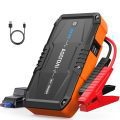Are you considering investing in a vehicle tracking system but feeling uncertain about the associated costs? You’re not alone. Many individuals and businesses are drawn to the convenience and security these systems offer, but the fear of hidden fees can create hesitation. In this blog post, we’ll delve into the various costs tied to vehicle tracking systems, helping you to navigate the financial landscape with clarity. By shedding light on potential hidden fees, we aim to empower you to make an informed decision that aligns with your budget and needs. Let’s explore what you need to know before you take the plunge.



Understanding Vehicle Tracking Systems
Vehicle tracking systems have become essential tools for both businesses and individual consumers. They provide real-time data about the location and movement of vehicles, helping to improve efficiency, security, and overall management. This section delves into what vehicle tracking systems are, how they function, the various types available, and their applications.
What are Vehicle Tracking Systems?
Vehicle tracking systems are devices or software solutions that utilize GPS (Global Positioning System) technology to monitor and track the location of vehicles. These systems can provide valuable data such as speed, routes taken, and even driver behavior. They have become increasingly popular in various sectors, including logistics, personal use, and law enforcement.
Key Features of Vehicle Tracking Systems
- Real-Time Tracking: Provides live updates on vehicle location.
- Geofencing: Alerts users when a vehicle enters or leaves a predefined area.
- Historical Data: Stores past routes and locations for analysis.
- Driver Behavior Monitoring: Tracks speed, braking patterns, and acceleration.
How Vehicle Tracking Systems Work
Vehicle tracking systems typically use a combination of GPS satellites and mobile networks to transmit data to a central server. Here’s a basic overview of the workings:
- GPS Module: Installed in the vehicle, it receives signals from satellites to determine its exact location.
- Data Transmission: The GPS module sends location data to a server through cellular networks, satellite communication, or a combination of both.
- User Interface: Users access this data via a web-based application or mobile app, allowing them to monitor vehicle movements in real time.
Types of Vehicle Tracking Systems
There are primarily three types of vehicle tracking systems available on the market: GPS tracking, cellular tracking, and hybrid systems. Each type has distinct features and advantages.
1. GPS Tracking
Description
GPS tracking systems rely solely on satellite signals to determine vehicle locations. They are known for their accuracy and are widely used in fleet management.
Examples
- Verizon Connect: Offers comprehensive GPS tracking systems with real-time data, historical reports, and driver behavior analytics.
- Samsara: Provides a fleet management platform that includes GPS tracking along with dash cam technology for enhanced safety.
Advantages
- High accuracy in location tracking.
- No dependence on cellular networks, making them reliable in remote areas.
2. Cellular Tracking
Description
Cellular tracking systems transmit vehicle location data through mobile networks. They are generally easier to install and can be more cost-effective.
Examples
- Tile Mate: A widely recognized Bluetooth tracker that can be attached to personal vehicles for basic tracking.
- Tracki: Offers a 4G GPS tracker that works globally and can be easily concealed in a vehicle.
Advantages
- Simpler installation process.
- Often more affordable than GPS-only systems.
3. Hybrid Systems
Description
Hybrid systems utilize both GPS and cellular technology, combining the strengths of both systems for enhanced monitoring capabilities.
Examples
- Geotab GO8: A powerful fleet management solution that integrates GPS and cellular tracking, providing comprehensive data on vehicle performance.
- Bouncie: Offers real-time tracking and diagnostics using a hybrid approach, ideal for personal and fleet use.
Advantages
- Offers the best of both worlds, ensuring accuracy and reliability.
- Provides additional features like vehicle diagnostics and maintenance reminders.
Common Applications of Vehicle Tracking Systems
Vehicle tracking systems are versatile tools that can serve various purposes, including:
Fleet Management
Companies can maximize efficiency by monitoring their fleet’s location, optimizing routes, and reducing fuel costs. For instance:
- Fleet Complete: A platform that provides fleet tracking and management tools, ensuring optimal route planning and real-time updates.
Personal Use
Individuals can use vehicle tracking for personal vehicles to enhance security and monitor driving behavior.
- Jiobit Smart Tag: A compact GPS tracker designed for personal use, allowing users to keep track of their vehicles or even their loved ones.
Theft Recovery
In cases of vehicle theft, tracking systems can assist law enforcement in recovering stolen vehicles quickly. Products like:
- LoJack: A well-known recovery system that employs GPS technology to help locate stolen vehicles.
Summary of Key Points
| Type of System | Description | Examples | Advantages |
|---|---|---|---|
| GPS Tracking | Uses satellite signals for location | Verizon Connect, Samsara | High accuracy, reliable in remote areas |
| Cellular Tracking | Uses mobile networks for transmission | Tile Mate, Tracki | Easier installation, cost-effective |
| Hybrid Systems | Combines GPS and cellular technology | Geotab GO8, Bouncie | Best of both worlds, additional features |
Vehicle tracking systems offer a range of functionalities and benefits that can cater to both commercial and personal needs. Understanding the differences between these systems and their applications can help you choose the right solution for your requirements.



Common Fees Associated with Vehicle Tracking Systems
When considering a vehicle tracking system, it’s essential to understand the various fees involved. These costs can significantly impact the overall investment, making it crucial to budget accordingly. Below, we break down the common fees associated with vehicle tracking systems, providing insights into what to expect.
Upfront Costs for the Devices
The first expense you will encounter is the cost of the vehicle tracking device itself. Prices can vary widely based on the brand, features, and technology used. Here are a few examples of popular vehicle tracking systems and their approximate costs:
- Verizon Connect: Prices start around $200 for a basic device, with advanced options rising significantly based on features.
- MOTOsafety: This is a more budget-friendly option, costing around $100 for the device, catering primarily to personal and teen driver monitoring.
- Bouncie: This device is available for about $70, focusing on real-time tracking and driving behavior analysis.
Installation Fees
Not all vehicle tracking systems require professional installation, but some do, particularly those that integrate with a vehicle’s onboard diagnostics (OBD). Here’s what you might expect regarding installation fees:
- Professional Installation: This can range from $50 to $200, depending on the complexity of the installation and the service provider.
- DIY Installation: Many modern devices are designed for easy self-installation, potentially saving you this cost entirely. For example, the Bouncie device is a plug-and-play option that users can install themselves in minutes.
Monthly Subscription Fees
After the initial investment, most vehicle tracking systems require a monthly subscription fee for ongoing services. This fee often supports features like real-time tracking, historical data access, and alerts. Here’s a breakdown of what you can expect:
- Verizon Connect: Monthly fees can range from $25 to $50 per vehicle, depending on the plan and features chosen.
- MOTOsafety: The subscription fee is approximately $19.95 per month, which includes access to driving reports and monitoring features.
- Bouncie: This service comes with a monthly fee of about $8, offering real-time tracking and alerts, making it one of the more affordable options.
Additional Fees
Depending on the provider and features you choose, there might be additional fees to consider:
- Early Termination Fees: Some services apply a fee if you cancel your subscription before the contract term ends. For example, Verizon Connect may impose a fee equivalent to a certain number of months’ service.
- Upgrade Fees: If you wish to upgrade your device or service plan, expect potential fees. For instance, moving from a basic plan to a premium one may incur an extra charge.
- Data Overages: Some plans may have data limits, particularly for features that use high amounts of data like video tracking. Exceeding these limits could lead to additional charges.
Comparison of Key Providers
To provide a clearer view of the costs associated with different vehicle tracking systems, here’s a comparison table:
| Provider | Upfront Cost | Installation Fee | Monthly Fee | Key Features |
|---|---|---|---|---|
| Verizon Connect | $200+ | $50 – $200 | $25 – $50 | Fleet management, advanced reporting |
| MOTOsafety | $100 | DIY | $19.95 | Teen driver monitoring, alerts |
| Bouncie | $70 | DIY | $8 | Real-time tracking, low-cost option |
Understanding these fees allows you to make an informed decision when selecting a vehicle tracking system that fits your needs and budget. By comparing costs and features, you can find a solution that offers the right balance of functionality and affordability.



Unveiling the True Costs of Vehicle Tracking
In conclusion, vehicle tracking systems provide valuable advantages for both personal and business use; however, it is essential for consumers to be vigilant about potential hidden fees. By thoroughly researching and evaluating all associated costs, users can ensure they choose a solution that fits their financial plan and operational requirements. Being proactive in understanding these fees will lead to a more satisfactory and cost-effective experience with vehicle tracking technology.






Could you expand on the ‘monthly service fees’? Are these pretty standard across different companies, or do they vary a lot?
Thanks for sharing! Verizon Connect does have some optional features that can add to the overall cost. It’s always a good idea to ask about all potential add-ons upfront.
Hey, great article! I recently went with the Verizon Connect tracking system, and I noticed some add-ons they offered that weren’t mentioned here. Anyone else experienced this?
Are there any tracking systems that are more user-friendly? Some I’ve seen look super complicated!
What about the privacy concerns? I’ve heard mixed reviews on whether these systems can be misused. Would be cool to get some clarity on that!
For anyone considering a vehicle tracking system, make sure to read the fine print! I once overlooked a cancellation fee with Fleet Complete, and it bit me hard.
Great tip! Reading the fine print is crucial, especially since many companies have hidden fees that can catch you off guard.
I’d love to see a deep dive into how these tracking systems impact insurance rates. Do they actually help lower your premiums?